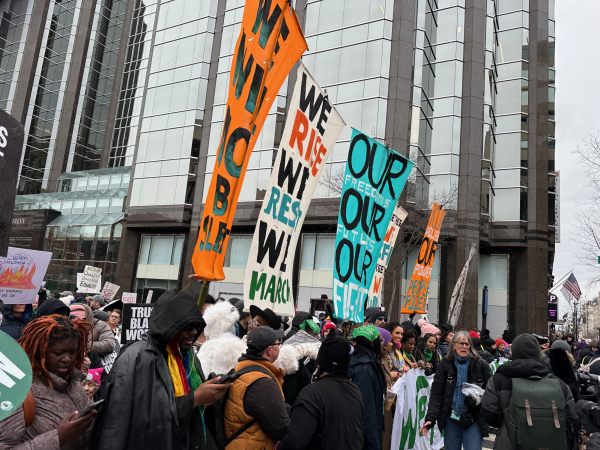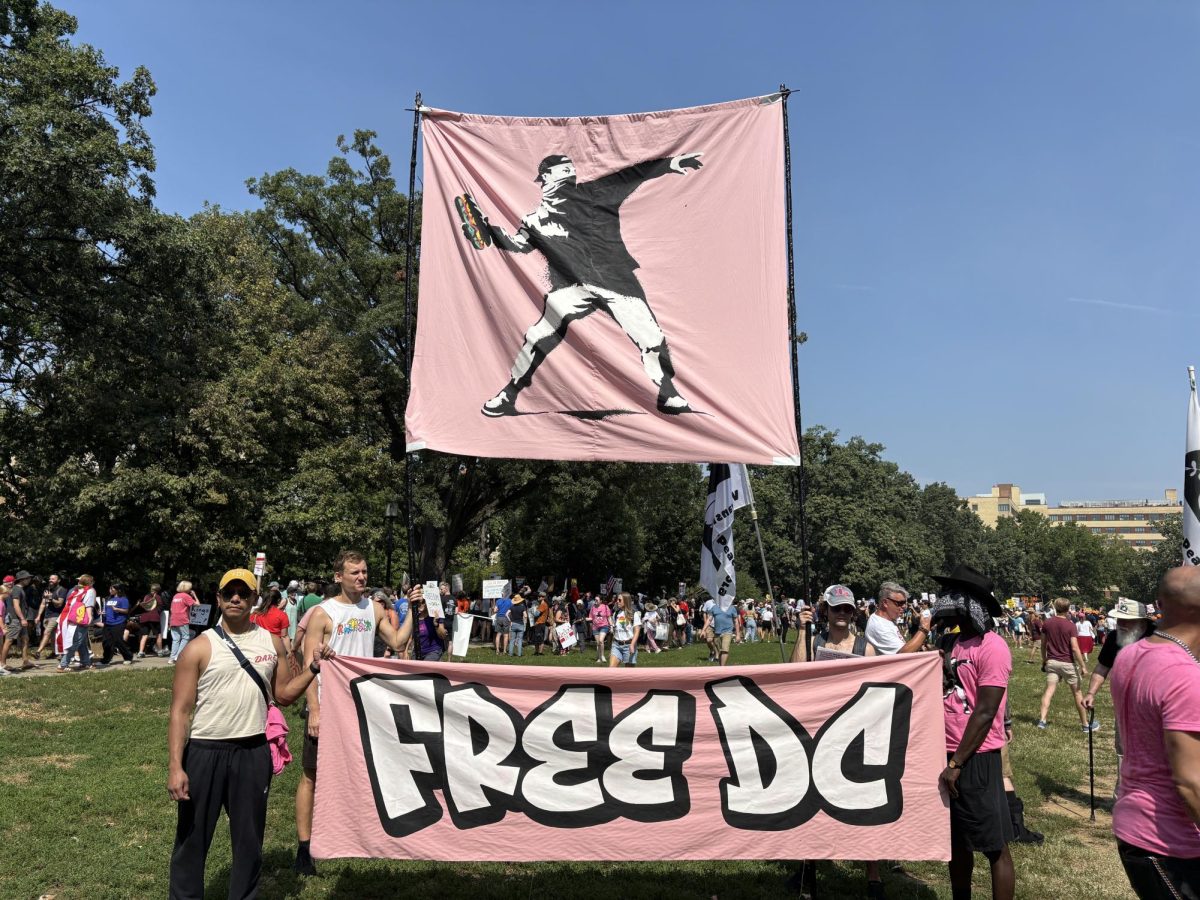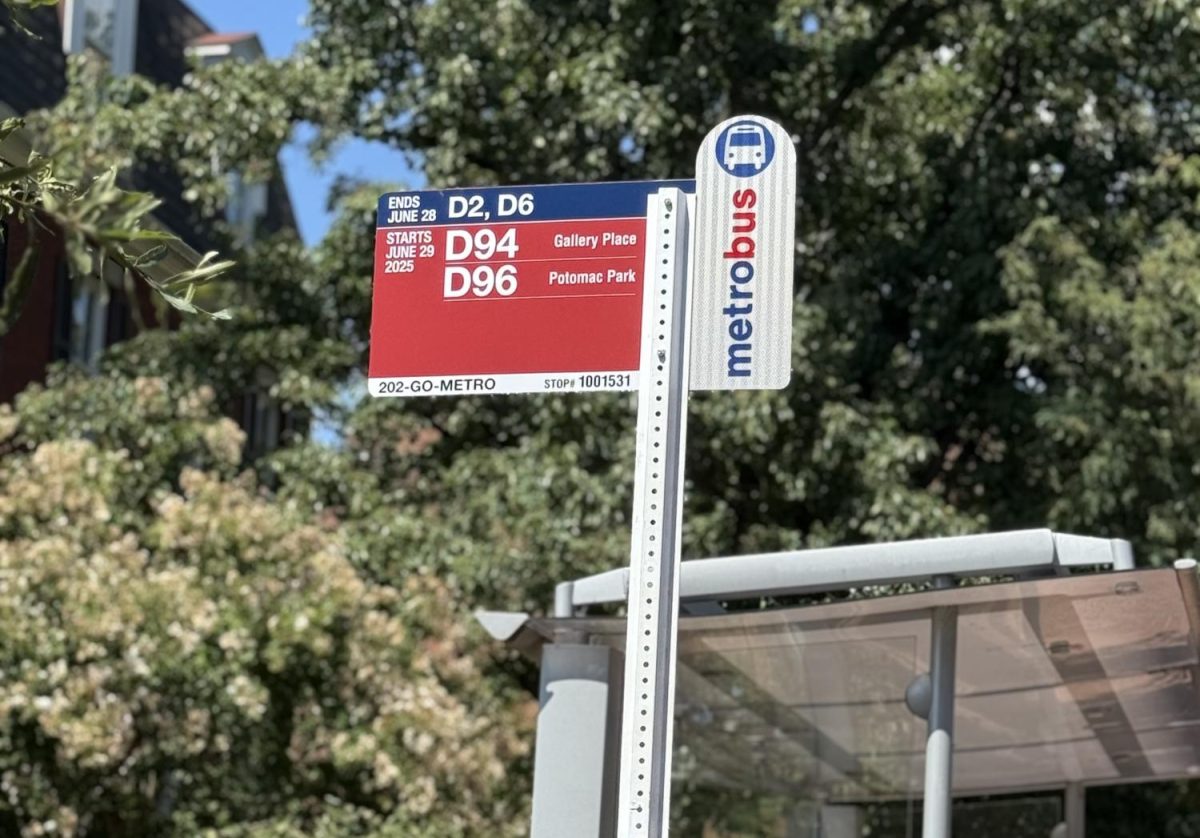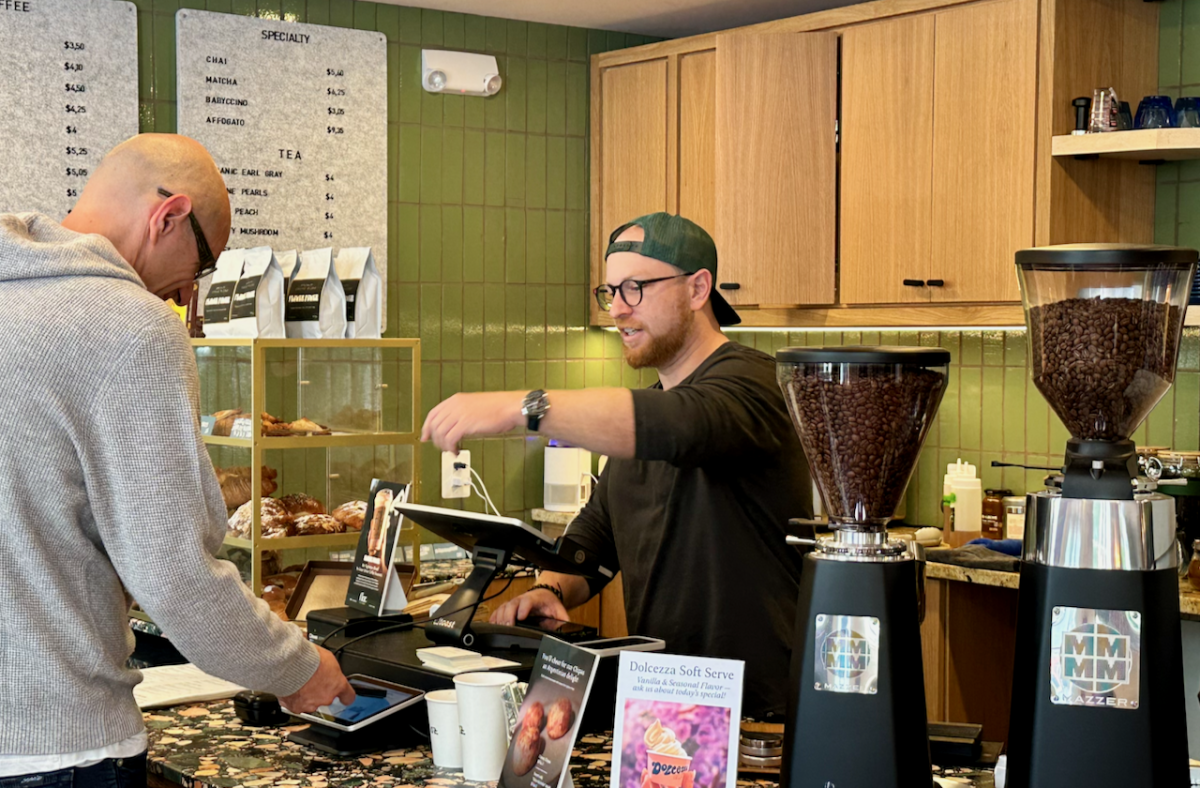Georgetown University students marched alongside thousands of protestors at the People’s March in Washington, D.C., Jan. 18 to advocate for women’s reproductive rights, racial justice and other progressive causes.
The march, organized in response to President Donald Trump’s Jan. 20 inauguration, saw about 50,000 demonstrators gather across D.C. before marching to the Lincoln Memorial, according to its organizers. At least 100 Georgetown students attended the protest, including members from student groups such as the Georgetown University College Democrats (GUCD) and Students Demand Action (SDA), which advocates for gun control measures.
Sara Holler (CAS ’28) said her experience attending the march offered a chance to connect with others holding similar perspectives on the incoming Trump administration.
“It’s really powerful to be in a space and in a community where there’s so many people that are coming from so many different walks of life that are all united under the idea that we want to keep moving forward in our country instead of backwards,” Holler told The Hoya. “Especially with this upcoming administration, seeing that power and how many people are on your side is really important.”

Corbin Chance (CAS ’28), the GUCD communications director, said GUCD hoped the march would show resistance to Trump’s policies.
“The overall goal of the march, I would say, is just showing solidarity that we aren’t going to take everything quietly or submissively,” Chance told The Hoya.
Chance said participating in the march fostered a feeling of cooperation as opposed to online communication, which he feels promotes division.
“Being a student in the digital age means feeling so alone, and a part of us being online is seeing ignorance and hate and feeling so alone in that,” Chance said. “I feel like an event like we did put us momentarily out of that.”
The organizers of the People’s March said they envisioned a national day of protest to promote connectivity, sparking over 350 local marches across the country that mirrored the D.C. event, including in New York, Los Angeles and Boston.
During the D.C. march, speakers argued in favor of abortion rights, climate action and D.C. statehood, citing Trump’s threats to limit abortion, freeze immigration and deport immigrants, eliminate transgender rights and reduce climate change programs as reasons for protesting.
At one of the march’s three starting points, feminist organizer Claudia Nachega spoke about reproductive rights and the Equal Rights Amendment (ERA), a proposed constitutional amendment which would guarantee gender equality.
Nachega said a national focus on reproductive rights is essential to defend against local abortion bans in Republican-led states.
“We can try and focus on passing state abortion ballot measures, but in terms of imminent abortion access, we have to have a constitutional guarantee at the federal level that abortion is legal,” Nachega told The Hoya.
Nachega said activists would continue fighting for gender equality and the ERA under Trump’s presidency.
“We’re going to try to hit him at every single point,” Nachega said. “We’re going to disrupt.”
Heather Sims, a demonstrator who advocated for women’s rights at the rally, said people in the United States must defend their civil rights and resist indifference to national changes likely to occur under the Trump administration.
“You cannot stop for apathy because you can’t give up,” Sims told The Hoya. “You can’t change your beliefs for the price of eggs, for the price of gas. This country gets too embroiled in its own dissatisfaction.”
Sims said the country needs to embrace diversity even when civil liberties are under attack.
“We need to recognize women, recognize people of color, recognize immigrants and human rights,” Sims said. “We can absolutely make that happen — we just need to keep coming out. You have to keep showing up.”
Holler said the scale of the People’s March encouraged her to stay involved in social justice advocacy efforts.
“With how many people showed up and how many people were so passionate and ready to help others and ready to engage with others, I felt that there was more than just me alone with my opinion,” Holler said. “I felt that maybe the next four years will be okay.”








